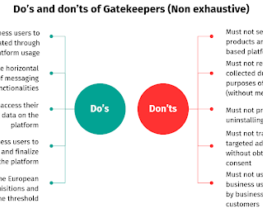Mental and intellectual disabilities on the labor market
Written by Chloé Destabel, Leo CAPPUCCIA
Everyone has the right to work but not everyone is allowed: the case of mental and intellectual disabilities.
The 28th European Week for the Employment of People with Disabilities will take place from November 18 to 24, 2024. Between 20% and 30% of people across Europe report having some form of disability that impacts their daily activities. The European Union has implemented policies aimed at promoting accessibility, equal rights, and anti-discrimination to improve the quality of life for people with disabilities. But are they efficient?
“I like economics because it is a structured way to understand the world, to relate things affecting us. I enjoy how economics can allow us to describe the world, to understand the mechanisms. I also appreciate modeling them, it is a very challenging exercise. “
How to define a disabled person ?
According to the World Health Organization (WHO) definition, "a person is considered disabled if their physical or mental integrity is temporarily or permanently diminished, either congenitally or as a result of age or an accident, in such a way that their autonomy, ability to attend school, or to hold employment is compromised." Not all individuals are equally affected by disability. Indeed, there are several types: disability may be intellectual, visual, auditory, motor, mental or psychiatric, and so on.

Mental or intellectual?
It is important to distinguish between intellectual disabilities and psychiatric/mental disabilities. An individual with an intellectual disability experiences limitations in intellectual capacities, while a person with a psychiatric/mental disability has intact intellectual abilities but may struggle to use them effectively. A well-known example of an intellectual disability is Down syndrome (Trisomy 21), which is entirely different from schizophrenia, a psychiatric/mental disability.
In general, in Europe, only 50.8 percent of persons with disabilities are employed compared to 75 percent of persons without disabilities in 2019. However, not all disabilities are equal in the job market.
“Employment Rate for People with Intellectual Disabilities is below 10%”
Across Europe, 20 million individuals with intellectual disabilities are largely overlooked. From school to the workforce, these people struggle to integrate. Among them, 20,000 receive no education at all and the employment rate for these individuals remains below 8% across Europe. The situation is difficult throughout Europe, but it is worse in some countries than in others: 36% in Ireland, 6% in Scotland or 3% in Portugal.
“An increasing share of Europeans suffer from mental disorders as well as a lower chance of getting a job. “
Nowadays, the number of people suffering from mental disorders continues to grow dramatically, which can be explained by recent world events such as the Covid 19, the Russian aggression against Ukraine, the climate crisis, and unemployment. Before the covid 19, it was estimated that 1 European citizen out of 6 suffered from a mental disorder. By contrast, according to the results of the Eurobarometer 530 survey in June 2023, nearly 1 in 2 people across EU countries had experienced emotional or psychosocial problems, such as feeling depressed or anxious, in the previous 12 months. This part of the population that suffers from mental disorders continues to grow, while for them, there are fewer chances to find a job. Suffering from mental disorders such as schizophrenia, bipolar disorder, depression, post-traumatic stress disorder and so on impacts one’s ability to be hired, each in their own way. However, they face difficulties with emotional regulation, concentration, and communication skills which are essential in today's businesses. Common mental disorders are 60-70% to be employed, compared with 45-55% for those with severe mental disorders but more than 70% for people with no mental disorder in 2013.
As everyone, disabled people have flaws, but they also possess incredible qualities.
Just as everyone has weaknesses in the professional world, people with disabilities may face challenges such as memory retention, the ability to concentrate, communication, or difficulties with spatial and temporal orientation. However, they also often possess remarkable strengths such as precision, rigor, commitment, and a strong sense of belonging. They can bring tremendous value to a company: fostering a culture of diversity and open-mindedness.
A well-known and emotional story is the one of Andrew D’Eri. Andrew is a young autistic boy who struggled to find a suitable job. His family decided to launch a company named “Rising tide car wash” that will provide jobs to autistic people.
“Typically, people with autism are really good at structured tasks, following processes, and attention to detail. So we saw that they're really important skills that people with autism have that make them, in some cases, the best employees you can have"
John D'Eri
CEO of Rising tide car
The company is now located in 2 cities and employs around 82 employees with autism, which makes up 90% of the total workforce. This is a great example of how being different, having a disability, can be valuable on the labor market.
Conclusion
Employing a person with intellectual or mental disabilities requires a phase of adaptation, support, and awareness within the team and the company. Providing knowledge on this subject is also important; it remains wrongly taboo for many of us but should not be. Everyone has a role to play in the people’s insertion in the labor market by providing a safe place with no judgment because every life matters and everyone has the right to work. According to the WHO’s article published in the beginning of September 2024, “For people with mental health conditions, decent work can contribute to recovery and inclusion, improve confidence and social functioning."
More Articles

The practical application, potential effectiveness and limits of the Digital Markets Act
By: Besseghir Yassine
On the 1st of November 2022 the Digital Market Act entered into force and become applicable on 2 May 2023. As it is stated on the European Commission webpage, “The Digital Markets Act is the EU’s law to make the markets in the digital sector fairer and more contestable”....

At a Crossroads: Europe's Weaknesses and Future in the Draghi Report
By: Du Breil Lucie
On September 9th, Mario Draghi, former president of the European Central Bank, derived its findings about the economic future of “The Old Continent”, like a ticking bomb. It presents a sharp analysis of Europe’s economic competitiveness, highlighting the strengths and the incoming challenges ...
The Fed’s Finest Hour
By: E.Flandin, V.Belleux and P.Rossignol
The central bank, often unknown to the general public, plays a crucial role in regulating and stabilizing the economy of a country, or a continent. Its main objectives are to regulate inflation and help the economy operate “smoothly” using various levers.These tools can be used for economic stimulus, such as setting key interest rates, which determine lending conditions for banks...

Why Are Monopolies Hard to Dismantle in the United States?
By: Echerfaoui Laila
This year, Professor Michael D.Whinston was awarded the Jean-Jacques Laffont Prize for his significant work on antitrust laws and his involvement in the Google monopoly case. After going through his main publications, news reports about him, and videos on the Google case, I started wondering: why are monopolies so hard to dismantle in the U.S. ...
